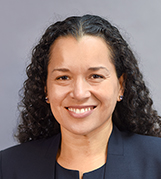Amendments to U.S. Statute of Limitations for Money Laundering Heightens Risks for Non-U.S. Targets
The U.S. Department of Justice (DOJ) continues to expand its aggressive enforcement efforts of non-U.S. individuals in money laundering investigations. Recent amendments to the statute of limitations for these violations have extended the prosecution timeframe from 5 to 7 years. At-risk individuals should take proactive steps to ensure they are protected.
January 30, 2025
The U.S. Department of Justice (DOJ) continues to expand its aggressive enforcement efforts of non-U.S. individuals in money laundering investigations. Recent amendments to the statute of limitations for violations of 18 U.S.C. § 1956 (money laundering) and 18 U.S.C. § 1957 (engaging in monetary transactions involving proceeds of specified unlawful activity) have extended the prosecution timeframe from 5 to 7 years, broadening the DOJ’s enforcement reach and heightening risks for non-U.S. targets and their assets.
When this 7-year timeframe is combined with an existing U.S. law allowing the statute of limitations to be extended for up to an additional 3 years if the U.S. requests evidence from abroad (18 U.S. Code § 3292), the U.S. DOJ now has up to 10 years to investigate a foreign national for money laundering offenses.
Given these changes, non-U.S. individuals face prolonged uncertainty during investigations, increasing their exposure to invasive and potentially damaging inquiries, especially when politically motivated adversaries attempt to use foreign law enforcement agencies, including the U.S. DOJ, as offensive weapons.
At-risk individuals should consider taking several proactive steps, including:
- Collect evidence proactively for global use. When facing politically motivated allegations, gathering evidence quickly to demonstrate that actions taken were lawful is important. Ideally, the evidence can be collected and prepared in a manner accepted by the DOJ and other international authorities, allowing politically motivated investigations to be stopped and shifted to the actual wrongdoers.
- Assess asset vulnerabilities against future government attacks. Individuals at risk of attack by the DOJ or other government authorities should consider a detailed examination of their asset structures – including those in offshore jurisdictions such as the British Virgin Islands, Cayman Islands, and Dubai – and explore lawful and appropriate preparatory measures that can be taken should an investigation be launched.
- Develop a factual narrative to protect against attacks from the media spurred on by politically motivated investigations. Individuals at risk should develop a proactive communications strategy that anticipates future legal actions and serves to discredit the allegations cast against them, with the purpose of mitigating any reputational harm caused and ensuring that the facts are properly reported against the actual wrongdoers.
Given that the U.S. authorities now have up to 10 years to investigate and prosecute non-U.S. individuals, at-risk targets can quickly find themselves subjected to unwarranted scrutiny. Proactive action will not only help protect reputation, assets, and liberty but also prevent potential investigations from dragging on for longer than they should.
About Kobre & Kim
Kobre & Kim is a global law firm focusing on cross-border disputes and investigations, often involving fraud and misconduct.
To preserve the assets, liberty and reputation of UHNWIs with global business interests, our firm:
- Provides offensive and defensive cross-border litigation and crisis management strategies in court and out-of-court;
- Brings together roughly a dozen former U.S. and UK government lawyers across offshore jurisdictions in the BVI and Cayman Islands, Asia, EMEA, Latin America and the U.S., including former prosecutors from the U.S. Department of Justice (DOJ) and UK Serious Fraud Office (SFO);
- Takes a multidimensional approach to UHNWI-focused disputes investigations to resolve business disputes and regulatory investigations, trace and recover misappropriated funds, defend against asset attacks, and acquire and strategically deploy information to provide UHNWIs with a commercial advantage in their disputes and investigations.





